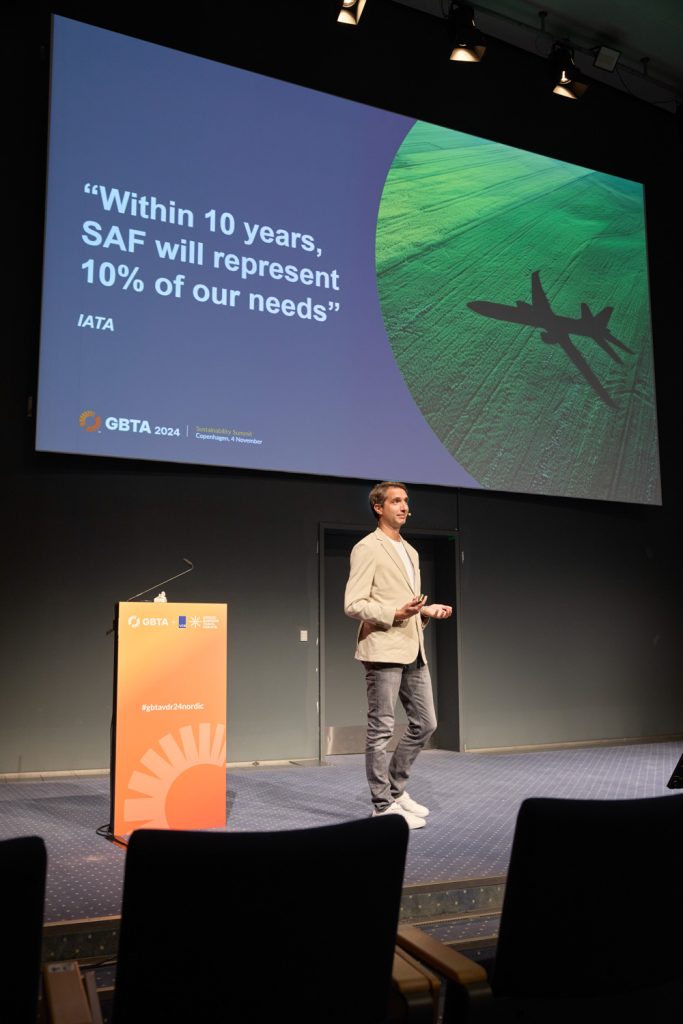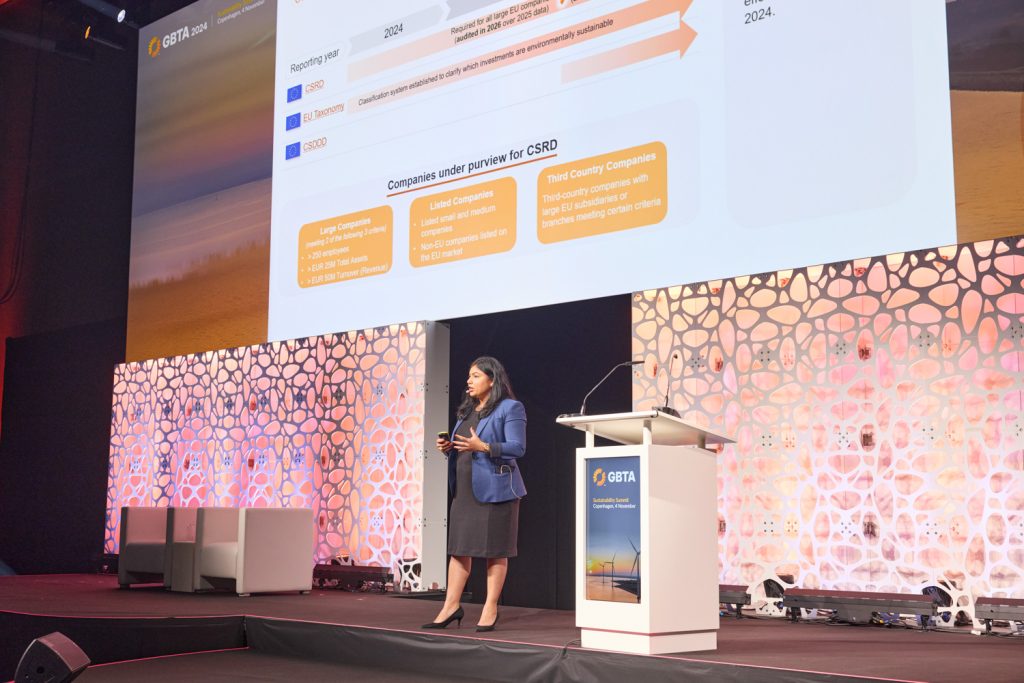5 Things We Learned from GBTA’s Largest-Ever Sustainability Summit
GBTA’s third annual Sustainability Summit 2024, held in Copenhagen, Denmark, brought together over 800 corporate travel buyers, suppliers, policy leaders, and industry executives to chart a more sustainable future for business travel. Occurring in a pivotal year for the global political landscape, there was no better time to reflect on how far we’ve come on climate action, reinforce our collective voice, and align around a pathway forward.
Sustainability Summit Photo Highlights
The full photo gallery from the Summit is available here.
There’s so much to unpack from the event! Here’re five key takeaways:
- Reframe the narrative: Keynote speaker Monica Araya challenged us to consider: what if business travel is the solution, not the problem? Throughout the day, participants reconsidered the status quo – how to reduce business travel emissions without reducing business outcomes, how to turn risks into opportunities, and how to plan for a sustainable future that considers not only climate but nature, economic prosperity, and wellbeing.
- It’s time to move from planning to action: Companies have much work to do to accelerate practices that materially reduce their business travel emissions. GBTA Foundation unveiled the results of its global sustainability benchmark, revealing that the global maturity score across all industry sectors stands at 1.3 out of 5 (with 0 denoting “no activity” and 5 denoting “leading practice”). Participants then engaged in an interactive workshop to discover how to turn company commitments into real impact.
- We’re shifting towards common standards: More and more companies are utilizing common sustainability language in procurement, but there is still a long way to go. Only 13% of companies are either using or planning to use the GBTA Sustainable Procurement Standards next year, perhaps due to lack of awareness or technological barriers. GBTA Foundation challenged the industry to integrate these industry-vetted and standardized questions into their procurement process – at a pace that meets the urgency of the climate crisis.
- Companies are prepping for ESG regulations: Companies are starting to report under the Corporate Sustainability Reporting Directive (CSRD) in the European Union and other ESG rules in the rest of the world – but they often need help with accuracy and implementation. Deloitte’s Priti Hoffman walked us through the upcoming changes and how businesses can stay ahead of the curve. Former Member of the European Parliament Jakop Dalunde also stressed that in addition to the reporting rules, the public sector must facilitate a more sustainable landscape for business travel, by reforming ticketing and digital services for rail and multimodal travel.
- Technology plays a pivotal role in sustainability strategies: Now more than ever, companies need support compiling, understanding, and developing strategies around their travel emissions data. Travel technology is homing in on increasingly accurate information for air, hotel, and ground emissions, not only at the point-of-sale but after the trip. Travel managers are also using their technology partners to define the cost of CO2 and set carbon budgets.
What’s next for companies and travel managers who need to tackle their business travel emissions?
- Join the global movement to accelerate climate action: Companies now have a pathway to integrate more sustainable business travel practices, including travel policies, emissions tracking, supplier engagement, and decarbonization investments. Those who are making meaningful steps towards improving the sustainability of their travel program are invited to join the Acceleration Challenge and improve their maturity score.
- Align around industry procurement standards: As an industry, we need to rally around one common set of sustainable procurement questions and commit to continuous improvement. Buyers should integrate the Sustainable Procurement Standards for aviation, hotels, and ground transportation companies into their procurement process. Meanwhile, suppliers and technology providers should encourage and facilitate the use of standardized questions.
- Advocate for a sustainable future: Business travel has an opportunity to use its collective voice to promote the development of technology, alternative fuels, transparent data, infrastructure, and multimodal options. To get involved in the conversation and be at the forefront of industry action, save the date for the next GBTA Sustainability Summit on June 10, 2025, in Washington, DC.
Download GBTA Sustainability Summit Highlights 2024.















